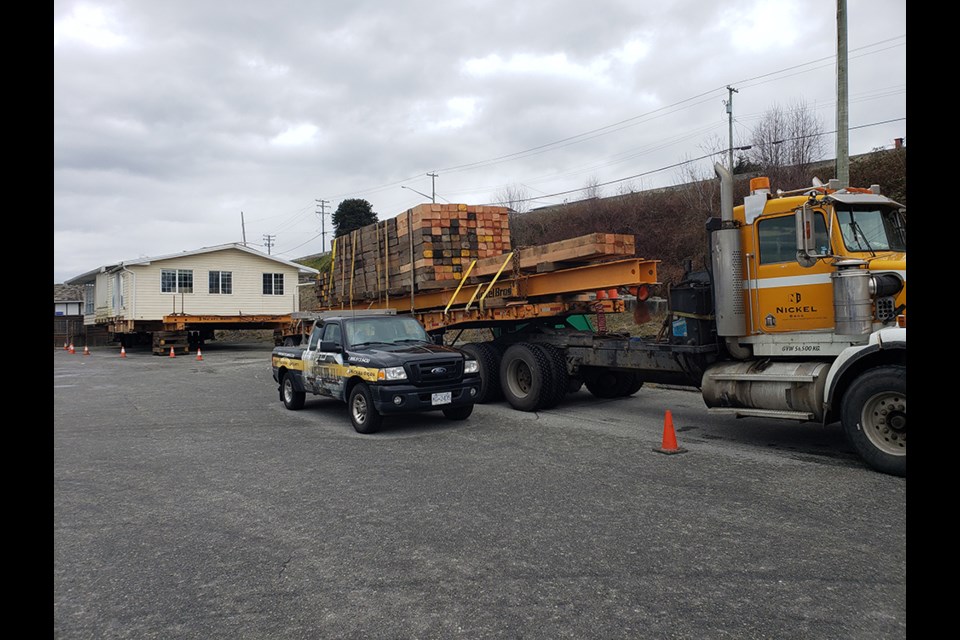As we watch the cost of building materials and homes tick ever upwards, we are all getting a little more innovative with resources for our next project.
There is no shortage of quality used materials coming available; this is evidenced by the stark fact that four million tonnes of construction material end up in Canadian landfills annually. What is lacking are the storage facilities to host materials between users.
Many communities are now establishing used building supply hubs and savvy builders make a point of stopping in regularly. In the absence of pre-loved building material centres, informal ways of exchange are cropping up. Local social media exchange forums boast entire kitchens, leftover project lumber, and unique vintage finds.
Powell River’s coming resource-recovery centre will set the scene for more local reuse with improved separation of materials at the new transfer station and recycling hub into more categories than ever before.
Avoiding new construction materials may also save your wallet some strain. That said, there is a need for industry standards to be established in order for permitting to allow for more reuse. There are restrictions on repurposed materials when building structurally integral components. Recycled paint, kitchen cabinetry, reused door knobs, vintage sinks, deconstructed shelving, and repurposed flooring are fair game.
These days, there is much more talk about the circular economy. Rather than the make-use-dispose model, we are thinking about keeping material in circulation. Deconstruction is making a comeback and inching demolition a little more to the sidelines each year.
Municipalities such as Metro Vancouver have a demolition bylaw in place and City of Victoria has one in the wings; these work to ensure more sustainable use of resources. Bylaws aim to reduce trashing perfectly usable building materials by incentivizing the process. A certain percentage (often between 75 and 90 per cent) of building materials of older character homes in particular, are required to be separated out and recycled or repurposed.
Pre-1940s homes have valuable architectural features and tend to be built with old-growth lumber, so they have been the focus of the first wave of deconstruction permitting. Not all homes are assessed as having the same value for deconstruction, however.
Entire businesses are now based on the growing deconstruction industry. Unbuilders is a Vancouver and Vancouver Island-based business established in 2018. As salvage experts they envision a future where demolition becomes a thing of the past.
Deconstruction has a long list of admirable side benefits including reducing the extraction of natural resources, creating more jobs than demolition, lowering greenhouse gas emissions, and keeping our bloated landfills on a diet. While the process of deconstruction takes longer than demolition, it can be cheaper when separated materials are recycled for free or at low cost and other materials are dropped off to building supply hubs allowing tipping fees and potential bylaw infraction fines to be skipped.
If you’re not in the housing market already, it can seem like a dream drifting ever further into the horizon. Nickel Bros house moving company is addressing this by relocating entire homes, sheds, and even industrial buildings all over in southwestern BC and Washington.
The environmental benefits are obvious, but it’s the greatly reduced cost of homes that is fanning the industry into flame. Recently, an impressive 7,000-square-foot 1935 Tudor-style home was relocated from Oak Bay to Saltery Bay. The average 1,600-square-foot home represents 60 trees worth of lumber alone and between 60 to 80 tonnes of building materials.
Full house relocation is expected to be increasing in popularity over the years to come, saving both buyer and seller money while extending the life of a perfectly sound dwelling.
Everyone deserves a home, and an affordable one at that. Fortunately, amid market mayhem alternatives for sourcing used materials, even entire homes are bringing us into better equity with each other and the Earth, which is housing us all.
Let’s Talk Trash is qathet Regional District’s waste reduction education program. For more information, email [email protected] or go to LetsTalkTrash.ca.



